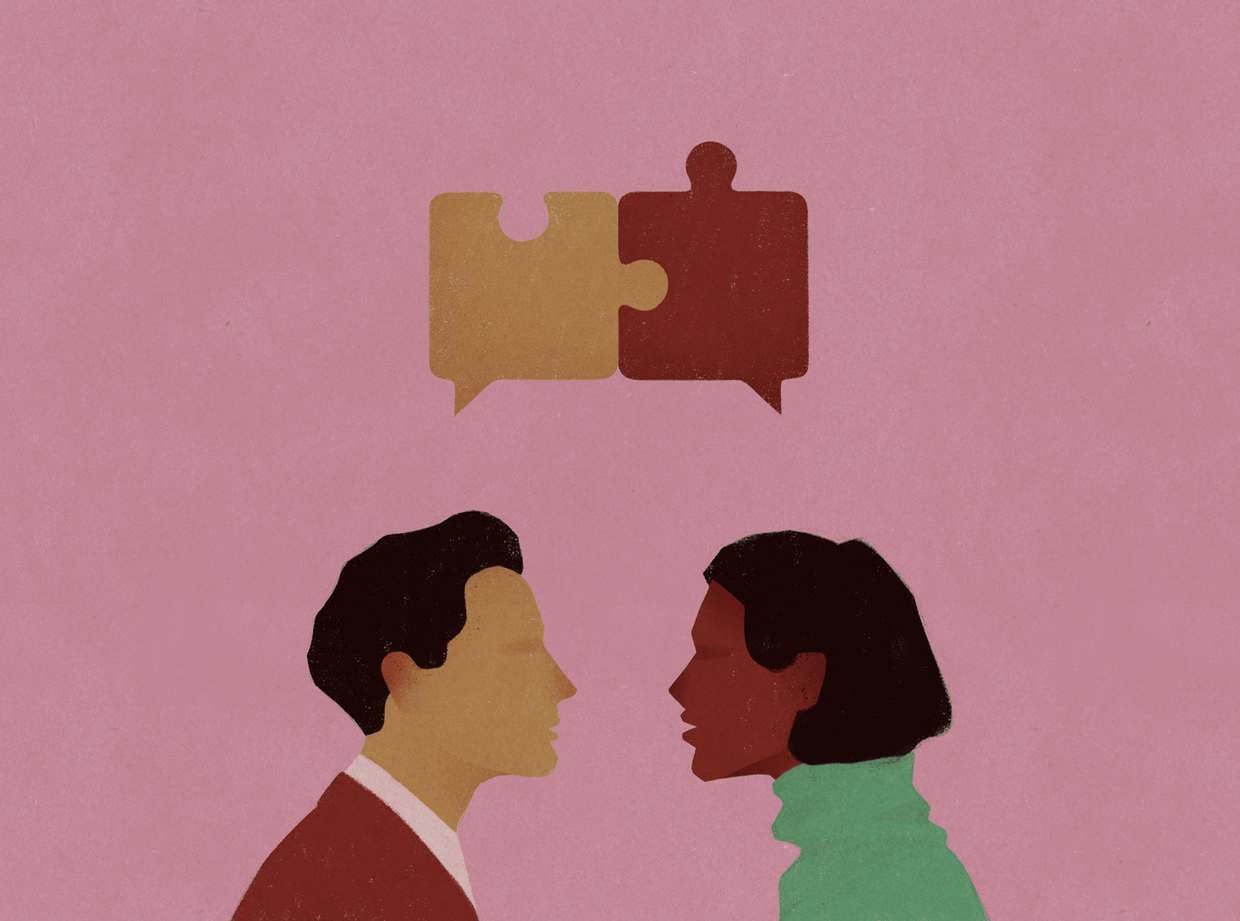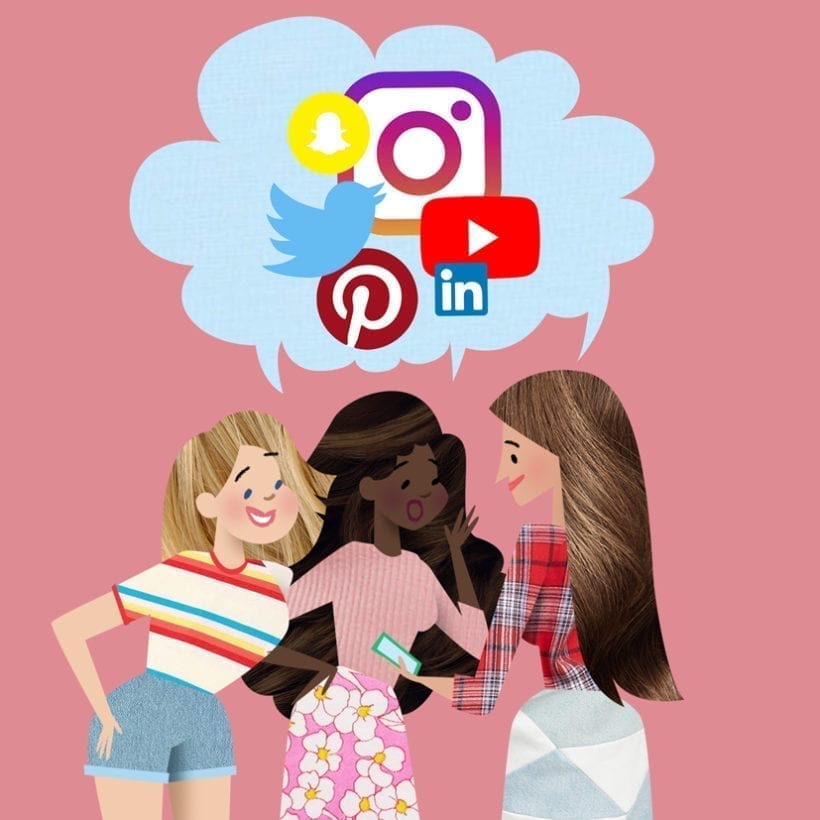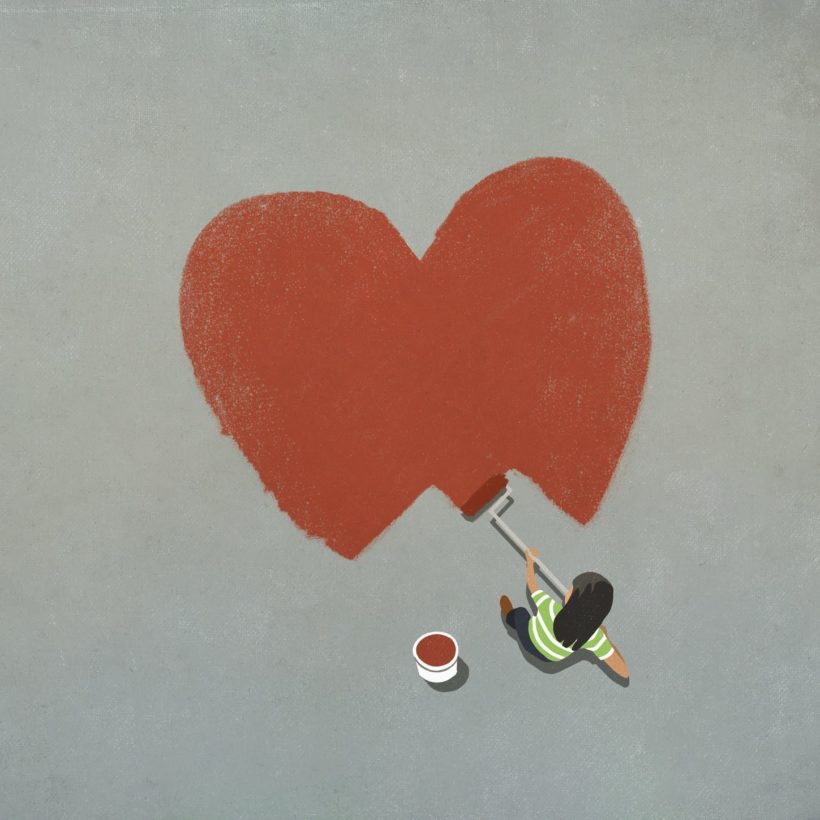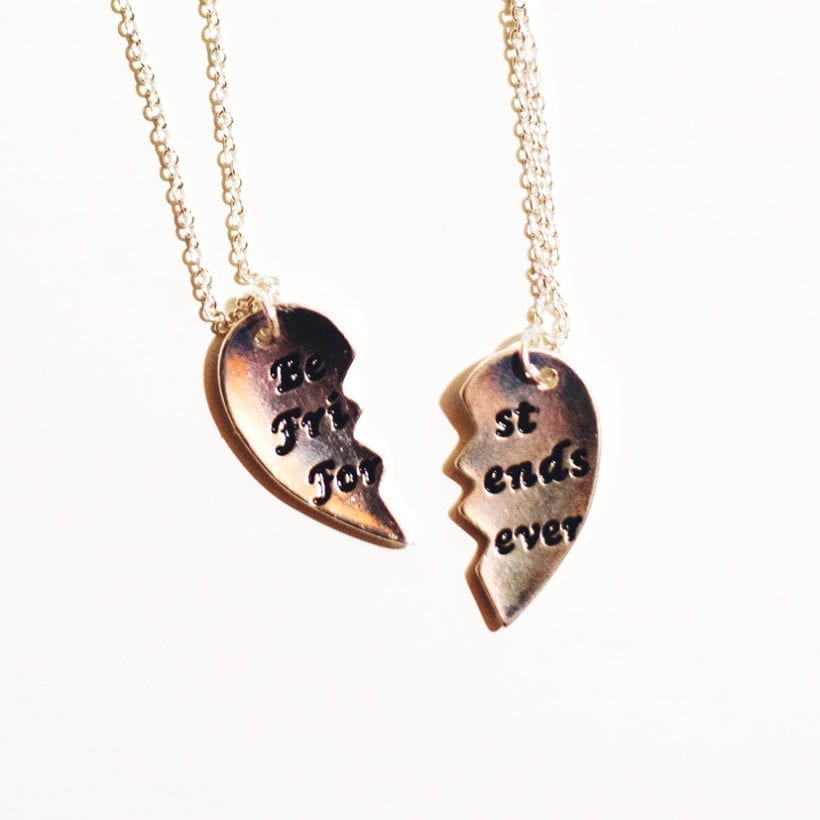Even the most outgoing people can find making small talk to be unquestionably awkward. From business functions to social gatherings to first dates, filling the silence with people you may hardly know can inspire its fair share of nerves. The good news, though, is that with a little thought and legwork, it is indeed possible to have better conversations with strangers that go beyond the banal talk of the weather. Keep scrolling for a bevy of tips to help you feel less awkward during these interactions, and who knows, maybe you’ll even learn to love — or at least enjoy — the whole small talk thing a little more. And believe us, after two years of a pandemic, we can all benefit from these tips.
How can I break the ice?
Striking up a conversation in a social or business setting can certainly be intimidating, but we have some handy suggestions for you to keep in mind the next time an event pops up. Lynne Henderson, Ph.D., director of The Shyness Institute, shares that first and foremost, it’s important to be yourself and avoid trying to be perfect — after all, no one is. Another tip is to look for common ground, including your interests, such as photography, or recent trips you might’ve taken, which will help easily get the conversation ball rolling.

We also turned to Debra Fine, author of the bestselling book, The Fine Art of Small Talk: How to Start a Conversation, Keep It Going, Build Networking Skills and Leave a Positive Impression, who recommends being prepared with a couple of things to talk about before you even walk in the door, noting that the worst time to come up with something to talk about is when there’s nothing to talk about. “Remind yourself about all the little tidbits you know about guests or fellow attendees, for example, perhaps someone recently started a new job or purchased a home,” she says. Otherwise, she shares that you can think about conversation starters related to the occasion or location, for instance, “Are you from here?” “How do you know the host?” or “What else do you have going on during this time of year?”
Suppose you have a larger business function coming up. In that case, you might want to try this suggestion from Allison Shapira, international public speaking expert, author, and adjunct lecturer at the Harvard Kennedy School, who tells Sunday Edit she’s found that people tend to have the most positive energy and openness to connecting at the beginning of an event. “I’ll arrive at the event early and meet people before their friends or colleagues show up — I feel more comfortable approaching someone on their own or in a small group, as opposed to later on when I might be interrupting a deeper conversation.”
Any convo tips when it comes to dating?
Don’t offer unsolicited advice; don’t talk about yourself, your vacation, your work, your kids, or your running routine for more than five minutes before throwing the convo ball back.
While the above tips about being yourself and finding common interests or hobbies to discuss certainly apply here, we turned to a few dating experts to elaborate even more. “I always say start the date off with a compliment — it’s free and makes things easier when you hear something nice off the bat,” says Stef Safran, matchmaker, dating expert, and owner of Stef and the City. She, too, recommends coming prepared to the date with a few conversation starters like the classic two truths and a lie or fodder related to pop culture or sports.
Another recommendation from Lindsay Anderson, head dating coach of Smart Dating Academy, is to take your questions a step further once you’ve encountered a topic that excites your date. “Rather than solely ask someone what they do for a living, follow it up with ‘What do you like most about your work?’ or ‘What did you want to be when you were a kid?’” You don’t want to firehouse them with question after question, though, or give them the third degree about why they’re still single or got divorced. “Remember that dating is not an interview and enjoyable conversation is like a tennis match with back and forth.”
When it comes to an area you’re not comfortable discussing, Safran highlights that it’s perfectly okay to change the subject. She elaborates: “I can’t tell you how many individuals misread each other on certain subjects that seem ‘easy.’ For example, some people might have had a falling out with a sibling, and so asking about siblings can elicit a strong emotional response. It’s also important to remember that this type of reaction isn’t always something to be taken personally.”
 How about conversation don’ts?
How about conversation don’ts?
A biggie that many of us have been guilty of at one point or another is looking at our phones mid-conversation. Fine shares that you most definitely do not want to do this unless you excuse yourself first — it’s important to be present.
A few of her other no-no’s? “Don’t offer unsolicited advice; don’t talk about yourself, your vacation, your work, your kids, or your running routine for more than five minutes before throwing the convo ball back; and don’t ask incredibly personal questions like whether the person is married or has kids.”
Rosalie Maggio, the author of The Art of Talking to Anyone, writes that there’s a reason it’s called small talk. “With people you don’t know well, you want to skate on the surface of the ice — no need to get into the deep, cold waters of philosophy, theology, the role of love in fourteenth-century Spain, or how deconstructionists have affected our universities.” She adds that the exception is unless someone else starts on a deeper topic and everyone else is interested in discussing it.
What’s the best way to gracefully exit a convo?
Perhaps you’ve mastered the small talk and now need to break away from a conversation. Fine says that the best way is to lead with “I need” statements. For example, “I need to speak with a client before she gets tangled up with others,” or “I need to grab a drink.” She follows this advice by noting that it’s important to be certain about what you said you needed to do. “Too often — even with the best of intentions — we say we need a drink, and as we are headed to the bar, we run into a colleague or friend,” Fine explains. “We don’t make it to the bar immediately, and this is not a good look, so instead, I’d recommend telling the person you ran into that you’ll be right back or perhaps ask them to join you in going to get a beverage.” Bottom line: The key is to depart with tact and leave the other person with a positive impression of you.
We only recommend products we have independently researched, tested, and loved. If you purchase a product found through our links, Sunday Edit may earn an affiliate commission.








